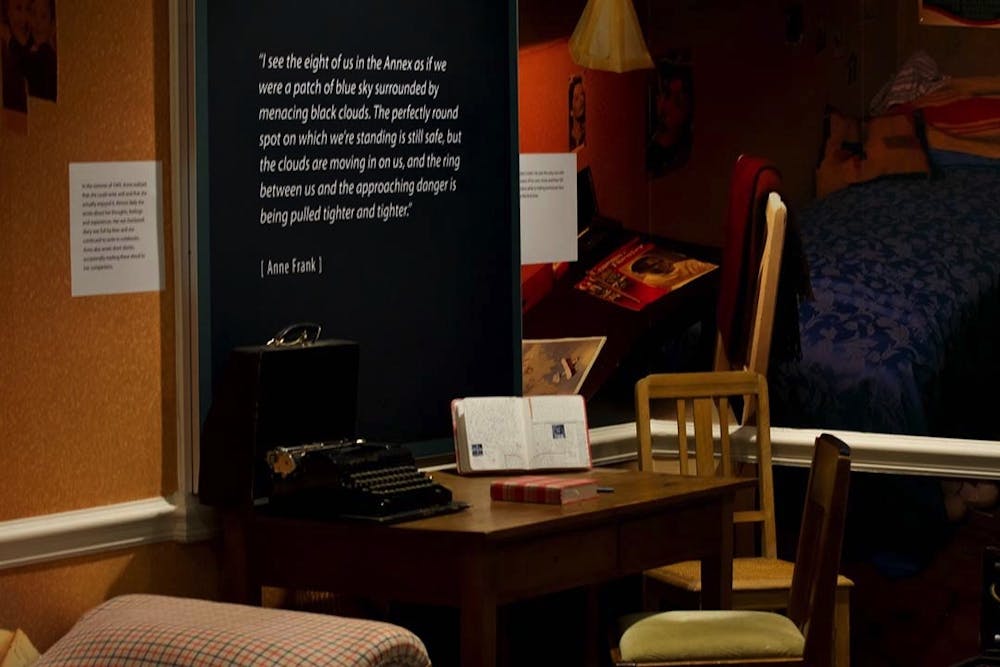USC will open the first North American location of the Anne Frank House, based in Amsterdam, to the public on Sept. 15.
The Anne Frank Center will be located at the Barringer House, between the Capstone tower and Close-Hipp building. The exhibit will give visitors an idea of where Anne Frank hid during the Holocaust.
Tours will begin with first-year students enrolled in University 101. The university plans to announce in October when it will be able to accommodate individual guests, according to executive director Doyle Stevick, executive director. The amount of visitors is limited because the Barringer house can only accommodate about 12 guests in a room at a time.
"You would see a room, like a museum, that also has video and a lot of icons and pictures that would show you the lead up to the Nazi takeover of Germany," interim university President Harris Pastides said. "It would show you what was happening in the world. It would show you then the early signs of persecution. Then, you go into another room, and you learn about Anne Frank; then you go into another room, and it's a recreation of her attic bedroom, and you begin to imagine what it was like."
Pastides interviewed Ivah Schloss, a Holocaust survivor, at the Coker Center in 2017. He also met Ronald Leopold there, the executive director of the Anne Frank House. There had been Anne Frank Centers throughout Europe, but this meeting with Pastides and Leopold resulted in the first North American center.
“I don’t say this lightly ... It’s probably one of the things I’ve done that I’m most proud of in all the 12 years I’ve been president, and here it is happening in this interim year. So, that’s a good way for me to realize this isn’t just a year to hang out and coast, but that's something that I couldn’t be more proud of — [to] happen now makes me extremely happy,” Pastides said.
Stevick is an associate professor in the College of Education and was a visiting scholar at the Anne Frank House in 2012, spending five weeks in Amsterdam. When the partnership between USC and the Anne Frank House launched in 2017, his publications about the Holocaust and long-standing relationship with the Anne Frank House in Amsterdam led Stevick to be appointed executive director of the new center.
“Engaging in this painful history gives us opportunities to have difficult conversations and explore possibilities to improve the world for those around us,” Stevick said.
The center was funded by both the Anne Frank House in Amsterdam and the University of South Carolina.
“It’s profoundly humbling and an honor to be chosen by an institution like the Anne Frank House, [that] could go wherever it wanted to go, but it recognized the quality of our faculty and our students, and it chose us as its partner for the United States,” Stevick said.
The Anne Frank Center is seeking student and faculty volunteers to guide tours. Volunteers will go through a three credit class about Anne Frank and the Holocaust to prepare to give tours. Anyone who wishes to volunteer can email AFCUOFSC@sc.edu.
Meir Muller is an assistant professor in the College of Education and is an ordained Rabbi who teaches the class “Convergence and Divergence of the African American and Jewish communities.”
“The Anne Frank Center at USC is very important, as it depicts the past horrors of the Nazi reign and it also shines a light towards the future. It lets us envision how we can push back against antisemitism, against racism, to make this a better world,” Muller said.

